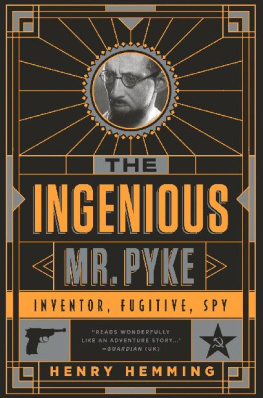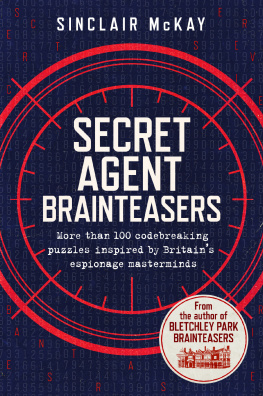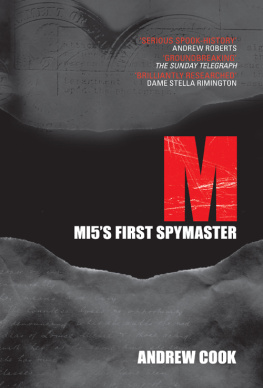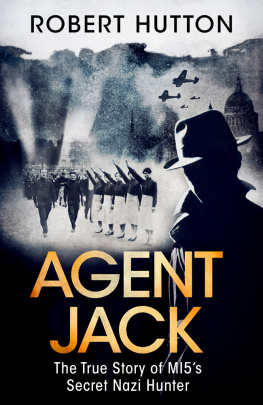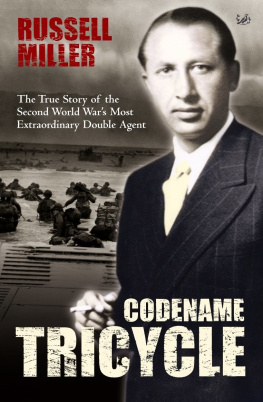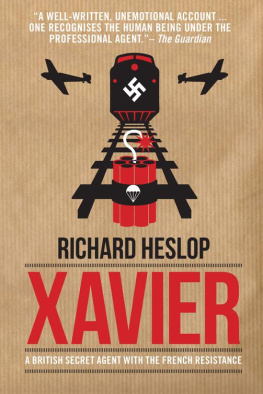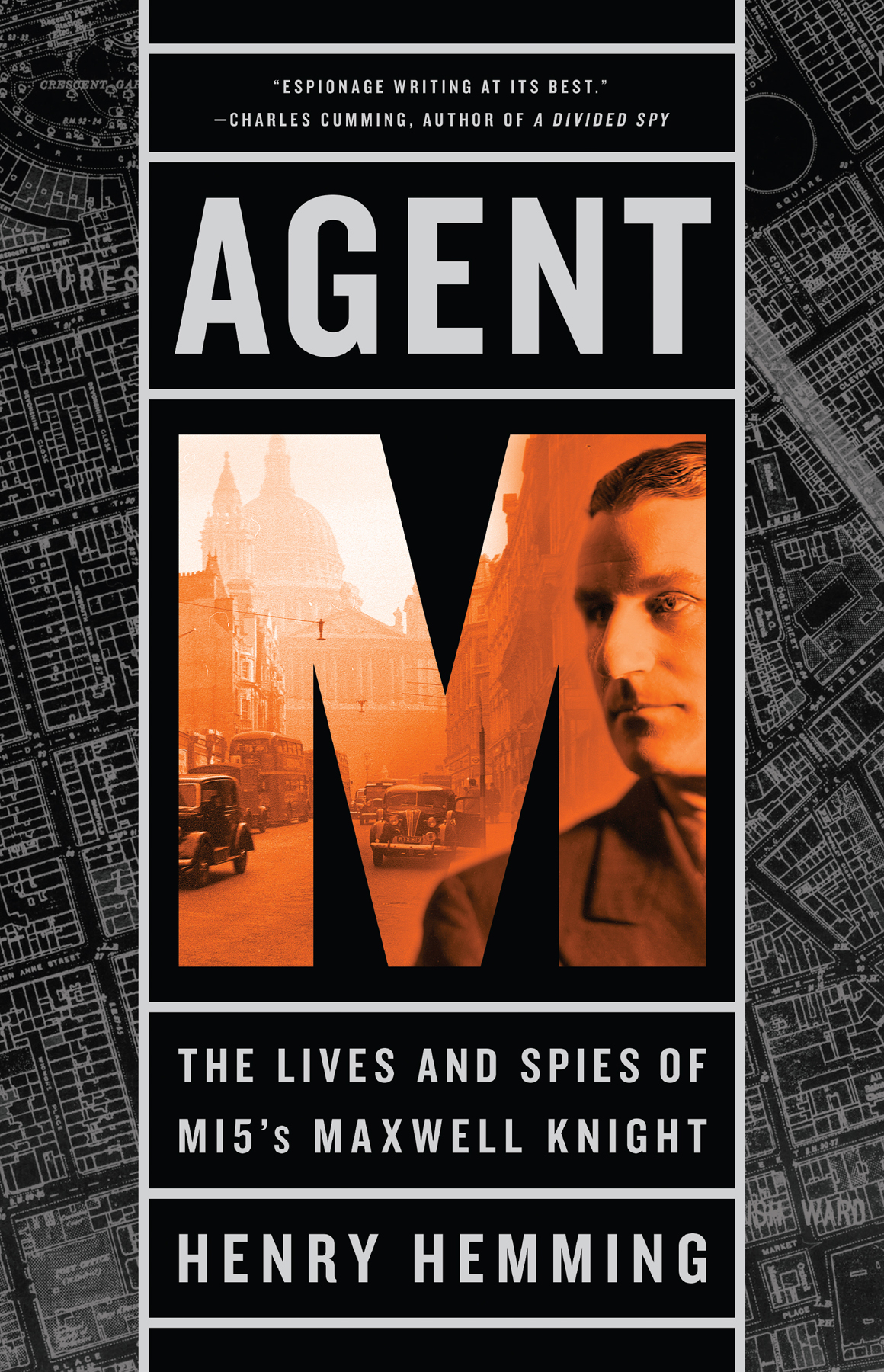T HIS BOOK IS BASED ON RECENTLY DECLASSIFIED MI5 FILES, CONVERSATIONS with former officers from MI5 and MI6, and the relatives of Maxwell Knight and the agents he ran, as well as diaries, memoirs, newspaper reports, and contemporary accounts. References for every quotation can be found at the back of the book.
Maxwell Knight may have been the greatest spymaster ever employed by MI5, Britains counterespionage agency, yet technically he never worked for it. The organization that we all know today as MI5 was quietly renamed the Security Service several weeks before Knight began to work there, but the new title took years to catch on in Whitehall. For most people today the Security Service is better known as MI5, the name I have used in this book. Maxwell Knight also worked at one point for MI5s foreign counterpart, originally known as MI1(c) or Cs Organisation, later MI6 and today SIS, which I have referred to throughout as MI6. (Just to help tell them apart: the TV series Spooks is set in MI5, whereas James Bond works for MI6.)
The most complex relationship in espionage, as well as the most fraught and dramatically compelling, is usually between the operative out in the field who gathers information and the man or woman to whom that operative reports. There are all sorts of terms to describe the two roles. The individual collecting intelligence might be a contact, source, informant, spy, or agent (and if this agent takes on his or her own informants, they are subagents), while the person they report to could be the agent runner, agent handler, officer, case officer, operations officer, or spymaster. A further source of confusion is that an American intelligence officer can sometimes be referred to as an agent. In this book I have generally referred to the people who gather intelligence as agents, and those who look after them as either officers or spymasters. For clarification on this, or any other question, feel free to get in touch. My e-mail address can be found at henryhemming.com.
E ARLY ON M ONDAY, M AY 20, 1940, AT A POINT IN THE S ECOND World War when the threat of a Nazi invasion of Britain feels unmistakably real, a police car pulls up outside a boarding house in central London. Five men pile out of the vehicle and make for the building. The door is opened by a maid. One of the men explains that they are looking for an American. His name is Tyler Kent. She asks them to wait and goes to fetch her employer. There follows a pause, probably no more than a few seconds, before the five men rush into the building.
One goes after the maid, while the others make a dash for the stairs. Two of the four men now haring up the staircase of No. 47 Gloucester Place are seasoned, solid-looking police detectives from Special Branch. The third is an official from the United States Embassy. The last is a broad-shouldered thirty-nine-year-old with a beaky nose and a gait that speaks of long country walks. His name is Maxwell Knight. To his friends, he is Max. To most of his colleagues in MI5, Britains counterespionage agency, and to his sprawling family of undercover agents, he is better known as M.
This is Ms raid. It is based on his analysis of intelligence from his operatives, a web of men and women that he personally recruited to his maverick wing of MI5 known as M Section. His specialty is getting agents inside extremist political groups. One of Ms undercover operatives, a middle-aged single mother who made a living before the war doing cooking demonstrations, recently provided her spymaster with the intelligence that led to this raid.
After the first flight of stairs, the four men are confronted by the landlady. One of the detectives produces his search warrant and asks for the whereabouts of Kent. She gestures at the door just behind them.
Tyler Kent is an American embassy official that M believes to be a Nazi spy. If the man from MI5 is wrong about this, there will be a diplomatic incident. If he is right, but has left it too late, classified communications may have already been dispatched to Rome and from there to Berlin. In the spy films this spymaster loves to watch, the plot usually centers on an enemy agent trying to steal secret papersthe MacGuffin, as Alfred Hitchcock calls them. It rarely matters what is on those papers. This is different. The documents that M hopes to find, and that the alleged Nazi spy has stolen, contain secret correspondence between Winston Churchill, the new British prime minister, and Franklin D. Roosevelt, the US president, which, in the wrong hands, could change the course of the war.
One of the detectives tries the door. It is bolted shut from the inside, so he knocks.
Dont come in, a man calls out.
The detective knocks again.
Dont come in! The voice is more indignant this time. M can hear traces of a whispered conversation and the irregular clunk-clunk-clunk of people moving about suddenly and at speed.
One of the detectives walks away from the door, turns, and prepares to charge. His name is Inspector Pearson and he is built like the side of a barn. The rest of the men clear a path to give him a clear run at the door and for a moment in that corridor, while elsewhere in London people are making their way to work, and across the English Channel German forces continue to bomb, shell, and shoot their way toward Paris, all is still.
It is hard to say precisely what is running through Ms mind at this point in the operation, only that very recently in his life he reached a crossroads. The outbreak of war nine months earlier had forced him to confront a ghost from his past. Now as he stands in the corridor, waiting for the policeman to break down the door, he is facing a decision that will change the way he is seen for years to come. This MI5 spymaster knows that he must choose between his friends and his country, punishing one in order to protect the other, and if he does not make this decision soon, very soon, it might be made for him. M is a man who has always valued loyalty above any other human quality, yet at this point in his life, to his dismay, he must contemplate a betrayal.
Inspector Pearson jogs down the corridor. Thud-thud-thud-thud-thud-thud. Crack. M watches his body slam into the door. The wood gives way with an easy splintering sound, and the passage is filled with light. The men race in.


